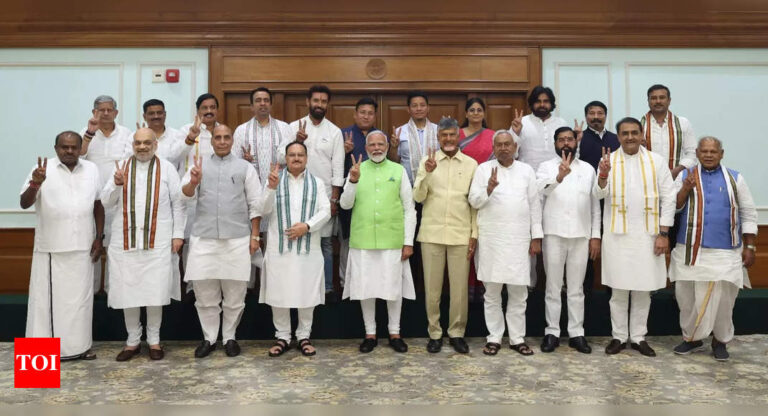China on Wednesday congratulated Prime Minister Narendra Modi on the victory of the BJP-led NDA alliance in the general elections and said the two countries should “look to the future” to put bilateral ties, which have cooled since the Galwan incident four years ago, on a “healthy and stable track”.
Results announced on Tuesday showed Prime Minister Modi’s Bharatiya Janata Party (BJP) won 240 of the 543 seats, giving the BJP-led National Democratic Alliance (NDA) a comfortable majority of 272 seats.
Relations between the two countries have slumped to their lowest level, except in trade, since the border conflict in eastern Ladakh erupted on May 5, 2020, following violent clashes in the Pangong Lake area near Galwan.
“We note the results of India’s general elections and congratulate Prime Minister Narendra Modi’s Bharatiya Janata Party (BJP) and the National Democratic League (NDL) on their victory,” Chinese foreign ministry spokesman Mao Ning said at a news conference here.
“A healthy and stable Sino-Indian relationship is in the interests of both countries and is conducive to peace and development in the region and beyond,” Mao said in response to a question from state media seeking China’s comment on Modi’s victory.
“China is ready to work with India to act in the fundamental interests of our two countries and peoples, keep in mind the overall interests of bilateral relations, and look to the future to put bilateral relations on a healthy and stable track,” she said.
Asked whether China plans to launch new efforts to repair bilateral ties which have been stalled since May 2020 due to a military standoff in the eastern Ladakh region, Mao said China’s consistent and clear position is that healthy and stable Sino-Indian relations are in the interests of both countries.
“We also hope that the two countries will act in the fundamental interests of our two peoples, move in the same direction, and strive for a sound and stable Sino-Indian relationship,” she said.
Since the 2020 clash, the two sides have so far held 21 rounds of corps commander-level talks to resolve the standoff.
According to the Chinese military, the two sides have so far agreed to withdraw from four locations – Galwan Valley, Pangong Lake, Hot Springs and Gogra in eastern Ladakh.
India maintains that ties with China will not normalise as long as the border situation remains abnormal and has been pressuring the People’s Liberation Army to withdraw from the Depsang and Demchok areas.
Meanwhile, China continues to maintain that the border issue “does not represent the whole of Sino-Indian relations and should be properly positioned and managed within the bilateral relationship.”
As the Modi government enters its third term, attention is expected to shift to the holding of the 22nd Corps Commander-level talks to resolve the impasse over disengagement in Depsang and Demchok areas and repair ties.
Ahead of India’s parliamentary elections, China last month appointed senior diplomat Xu Feihong as its new ambassador to New Delhi after an 18-month delay.
Ahead of his departure to India to take up his new duties, Xu, 60, said China was ready to work with India to find mutually acceptable solutions to “specific issues”.
“China is ready to work with India to take into consideration each other’s concerns, find mutually acceptable solutions to specific issues through dialogue at an early stage, and improve the situation as soon as possible,” Xu told PTI in an interview with China’s state broadcaster CGTN.
In an interview with Newsweek magazine in April this year, Prime Minister Modi said that India’s relationship with China is important and meaningful to the country.
“I believe there is an urgent need to address the protracted situation at the border so as to make this anomaly in relations between the two countries a thing of the past. A stable and peaceful relationship between India and China is important not only for the two countries but for the entire region and the world,” he said.

